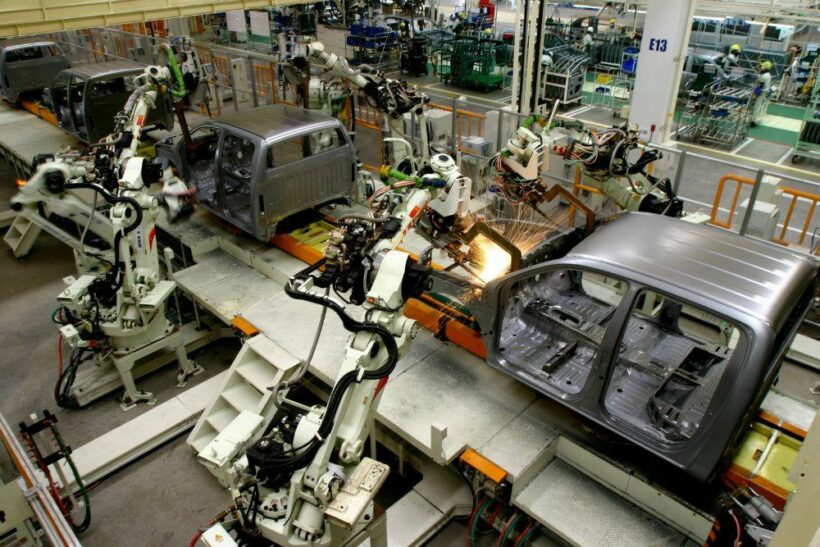Thailand’s vehicle exports affected by world chip shortage, Russia-Ukraine conflict

The Automotive Industry Club have reported a decline in Thailand car production for January, citing the Russia-Ukraine conflict and a global shortage of semiconductors (microchips).
Last month’s car production reached around 151,700 vehicles nationwide, a 2.45% increase year-on-year, but a 1.7% decline since last December, according to AIC spokesperson Surapong Pisitpattanapong.
About 74,700 of the vehicles were produced for the domestic market, which accounted for 49.2% of production. The remaining 50.8% of the January production, some 77,000 vehicles, went for exports, according to the NNT (government news channel).
The rise in demand for electronic devices during the Covid-19 pandemic, coupled with the increasing popularity of electric vehicles, has triggered the global semiconductor chip shortage, according to the AIC. They predict chip shortages will last until at least 2024.
The silver lining is that, although production is down, the export value of car engines and parts in January increased 6% from the same period last year to 65.9 billion baht, AIC said.
Meanwhile, the Russian invasion of Ukraine is going to make the current global semiconductor shortage even worse in the short term, all at a time when it was showing signs of easing post-pandemic.
The war between the two neighbouring countries, which both supply raw materials for production of semiconductors, could set the chip supply shortage back so far that normal levels of production may not resume until 2024.
Ukraine supplies most of the world’s semiconductor-grade neon gas which is used in microchip manufacturing.
After a Russian incursion into Ukraine in 2014, the price of neon increased by more than 600% in a matter of days, turning the semiconductor industry on its head.
SOURCE: NNT
Latest Thailand News
Follow The Thaiger on Google News:


























